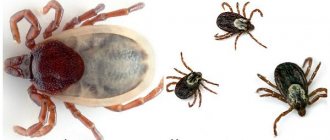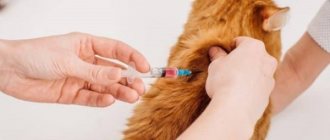| SERVICE | PRICE |
| Veterinarian visit to home | |
| Within the Nekrasovka district | 500 rub. |
| Within the Moscow Ring Road | 1000 rub. |
| Beyond the Moscow Ring Road | 1000 rub. + 10 rub./km |
| Castration of cats up to 5 kg | |
| Standard (complete recovery from anesthesia within 24 hours) | 2500 rub. |
| Premium (complete recovery from anesthesia within an hour) | 3500 rub. |
Get a free consultation>>>
- Why do you need to castrate cats?
- How is castration performed?
- At what age is it better to castrate a cat?
- Types of castration
- At home or in a clinic?
- Preparing for castration
- Postoperative period
- How much does it cost to castrate a cat?
When cats exhibit behavioral problems, castration is a good solution. This is a great step to help your pet reduce the frequency of unwanted behaviors that are normal in the cat world but unacceptable in ours. A castrated cat does not have the ability to reproduce and will also be deprived of a source of testosterone, which affects hormonal behavior.
Why do you need to castrate cats?
Castration is a relatively simple procedure in which the testicles are removed. This deprives the animal of reproductive ability and eliminates hormonal changes in behavior.
- Removing sexual urges makes your pet calmer, so he won't run away from home in search of females when they're in heat.
- Reducing or preventing a particular form of aggression.
- Prevents testicular cancer.
- Reducing the risk of prostate disease later in life.
- Control of hormonal diseases such as tumors.
- Establishing good behavior.
Many of the so-called disadvantages of neutering cats are unfounded. As a rule, the interests of owners are related to the following issues:
Risks associated with surgery/anesthesia. Although all surgeries involve some degree of risk, this is a common procedure that has many more advantages than disadvantages.
Weight gain. Animals don't get fat because they were castrated. Their metabolic needs will be less, so you need to slightly reduce the amount of food. If you adjust your pet's diet, he will not become fat as a result of neutering.
Changes in behavior. Animals do not become spineless and boring. However, neutered animals become more gentle while maintaining their character and intelligence.
Measure seven times: for or against?
The veterinary community worldwide recommends sterilization for all non-breeding domestic animals (male and female).
If the cat is not a super champion of a rare breed, castration will help the owner emerge victorious from the battle with the vagaries of nature: the pet will become much calmer and friendlier, will stay at home more often, cats in heat will no longer be interesting to him, and property will not suffer from marks and scratches.
And this is not the only case when it is better to castrate a cat. There are clear indications and absolute contraindications for sterilization.
The effect of the operation will also depend on the age chosen by the surgeon for castration of the cat. If the cat is an adult, then some sexual behavior will not disappear on its own.
Sex hormones are produced mainly in the testes, and, according to as yet unverified data, in small quantities in other glands. Therefore, removal of the testicles (testicles) makes it possible to almost completely block sexual behavior.
NOTE! If the cat has already begun to mark, after castration his urine will become less saturated with pheromones, but the marks themselves may remain.
Not for the sake of whim - for health
Since the operation affects the holy of holies of the male individual, doubts may arise whether to castrate the cat or not.
There are cases when surgery is inevitable, no matter how much the male half of the family and the pet itself resist it, no matter how significant the opinion of religion.
To preserve the life and health of your beloved cat, you will have to negotiate with your doctor about castration and sacrifice the cat’s right to reproduce.
Something else interesting: How and what to feed a cat after sterilization
The reason for such a sacrifice may be:
- Congenital pathologies and disorders associated with the number of chromosomes (normally, a cat has 19). Most often we are talking about different forms of hermaphroditism (a combination of characteristics of both sexes in one organism);
- Cryptorchidism is the underdevelopment or absence of one or both testes. Avoiding surgery can lead to the degeneration of underdeveloped tissue into a tumor or the development of an inflammatory process;
- Serious injuries and consequences of acquired diseases that are incompatible with the normal sexual function of the male. Failure to occur or pain will cause more suffering to the cat than surgery;
- Endocrine and behavioral disorders that require correction of testosterone levels or lead to sexual dysfunction in cats. In both cases, surgery is indicated.
Contraindications for surgery
If the cat does not mark, behaves quietly, and does not get into fights over cats, then he does not need any surgical intervention.
The operation is contraindicated if:
- The cat is old, has serious problems with the heart, nervous system or kidneys;
- The pet is over 3 years old, healthy, but does not exhibit problem behavior due to the lack of any contact with relatives and the outside world;
- The cat's body is weakened by infection, exhaustion or other reasons. This is a case when it is impossible to castrate a cat temporarily.
Optimal time
To avoid male marking and territorial behavior, the kitten can be neutered as soon as both testes have descended into the scrotum and are accessible to the surgeon.
This happens no earlier than 4 months, but no later than 1 year and often close to the autumn-spring rut.
Your doctor will help you determine at what age your pet will be ready for surgery.
BY THE WAY! Clinics quite often organize discount promotions for castration, especially at the end of winter. Before the period of March songs under the windows.
Since the tolerance to anesthesia and muscle relaxants is different for all cats, it is better to entrust both the choice of method and the selection of drugs according to age to a professional.
At what age is it better to castrate a cat?
Sexual behavior usually develops in adulthood, so it is best to castrate the animal as early as possible. Once he learns this behavior, it will be much more difficult to control it.
The operation is much easier and therefore safer when your pet has not fully developed sexually, which is why veterinarians at the Good Doctor clinic recommend castration while the cat has not yet reached puberty. The exact age will vary depending on the species and breed, so it is important to talk to your veterinarian relatively early to ensure the timing is ideal.
But, even if puberty has already occurred, castration can be carried out. It's never too late to do this.
When is the operation performed?
You can castrate a cat after reaching puberty, when he begins to mark his territory. For most breeds this period is 7 months, for some breeds it is 4–6 or 10–12. Removing the testes earlier can lead to developmental delays. In old age after 7 years, the procedure is undesirable, as it threatens to worsen existing pathologies. For safe castration, the cat must be healthy to avoid surgical or anesthetic complications.
Types of castration
Neutering is a vital component of preventing cat overpopulation. Veterinarians and animal welfare groups widely recognize the importance of this medical procedure. Although most people are familiar with traditional surgical procedures, there are different methods for sterilizing cats.
Chemical sterilants can be used, but at present they do not adequately replace surgical sterilization and more research is required.
Procedures for cats:
- Traditional sterilization (orchiectomy): removal of the testicles. Reduces problem behaviors such as aggression, territory marking and howling.
- Vasectomy: The veterinarian makes an incision in the scrotum and closes the tubes. Fast, minimally invasive surgery. This procedure prevents unwanted pregnancy, but keeps testosterone levels high, so problematic behavior may remain.
- Injectable sterilizing agent: A chemical compound is injected into the male's testicles to cause infertility. The procedure does not require anesthesia.
At home or in a clinic?
It is best to have surgery at the Good Doctor clinic. Here the animal will be prepared for the procedure and will be monitored until all the anesthesia wears off. The procedure is quick and painless.
But, there are situations when it is not possible to visit the clinic due to work schedule or stress of the pet. Our veterinarians can come to your home and carry out this procedure in the conditions familiar to the animal.
The preparation is the same for male and female cats. You should not feed your pet 10 hours before surgery. However, access to drinking water must be maintained during this period. It is advisable to bathe your pet so that it is clean. This will prevent infections after surgery.
If the cat has any diseases, this must be reported to the veterinarian before the procedure begins.
Cut once: day of surgery
So, the time comes when you can castrate your cat. Agreements with the doctor have been reached and an appointment has been scheduled. The castrated patient awaits his fate. He needs to be prepared for a simple, but still surgical operation.
The ideal algorithm looks like this:
- The pet must be vaccinated no earlier than 1 year and no later than 40 days before surgery. Rabies vaccination is required! It is permissible to reduce this period to 2 weeks.
- No later than 2 weeks before, it is necessary to repeat the prevention against fleas and worms.
- Check that the wool is clean and free of tangles and tangled debris.
- 12 hours before the operation it is necessary to keep the person being castrated on a starvation diet.
- On the day of surgery, it is advisable to conduct an ultrasound examination of the genitourinary system and diagnosis of the heart condition. Standard clinical tests won't hurt either.
- During the entire preparation time, remain calm and do not aggravate the emotional background around the animal.
Something else interesting: How to properly remove fur from a cat’s stomach
If you carefully monitor the health status and vaccination schedule of your pet, then it will be easy to fulfill all these conditions. Good care makes any veterinary procedure much easier.
ADVICE! Discuss the possibility of inpatient observation with the clinic in advance. This will cost from 300 rubles per day, but the pet will be constantly under the supervision of specialists.
What will the doctor do?
First, the doctor will carefully examine the cat. If everything is in order, then for the next half hour you will have to stand in the clinic corridor waiting for the end of the operation. The doctor will quickly and almost bloodlessly remove the contents of the scrotum and apply several internal stitches.
The skin incision is not sutured, but covered with a sterile bandage. The incision will serve as drainage for some time.
ADVICE! Before the operation, you should not watch a video about how a cat is castrated. If you're really interested, do it later.
Postoperative period
The animal may need to wear a collar to prevent any licking or biting of the surgical site.
The surgical site should be checked daily for signs of bleeding, leakage, or swelling. You should contact the clinic immediately if you have any concerns about this.
The pet should be provided with a quiet place to rest and recuperate.
Sterilization will lead to changes in the animal's hormonal balance and metabolism. Your veterinarian will be able to recommend an appropriate diet to minimize side effects.
How much does it cost to castrate a cat?
The cost of the procedure depends on the selected operation option. Prices for castration of cats up to 5 kg:
- When recovering from anesthesia within 24 hours – 2500 rubles.
- When recovering from anesthesia within an hour - 3,500 rubles.
The procedure can be performed at the Good Doctor clinic or at home. A visit from a veterinarian to your home costs:
- Within Nekrasovka – 500 rubles.
- In Moscow within the Moscow Ring Road – 1000 rubles.
- Outside the Moscow Ring Road – 1000 rubles. + 10 rub./km.
The doctor will perform a painless operation under anesthesia, observe the animal and tell you what to do to ensure that the pet recovers as quickly as possible.
What should be done after castration of an animal?
The pet should be placed in a warm place. You should not place him on a bed or sofa, from which he could fall and injure himself. Water should be given 3-4 hours after the operation, and food only the next day to prevent vomiting. The wound is simply observed during the rehabilitation period. If it becomes inflamed and the swelling does not go away on the third day after orchidectomy, urgent consultation with a specialist is required.
| Diagnostics | Prevention |
| Vaccination | Surgery |
| Hospital | Sterilization |
| Castration | Therapy |
| Traumatology | Analyzes |
| Ultrasound for cats | Dental sanitation |
| Day hospital | Obstetrics |
| Obstetrics gynecology | Ringworm in a cat |
| Poisoning in cats | Funeral services |











